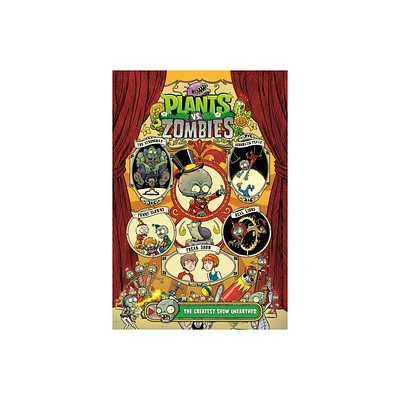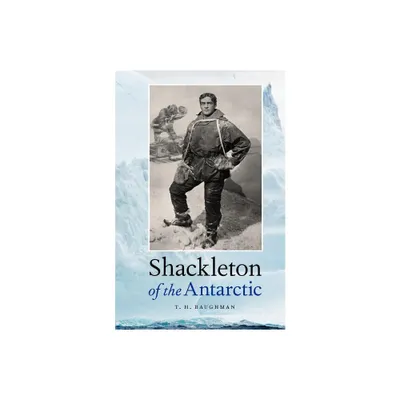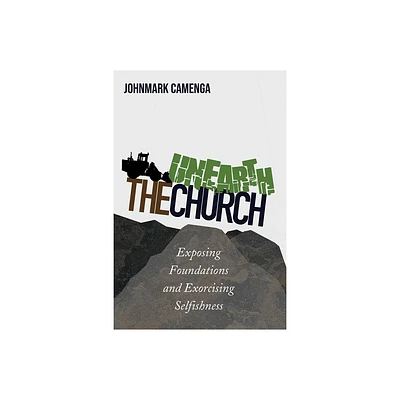Home
Frozen Descent: Unearthing the Antarctic Zombies:
Loading Inventory...
Barnes and Noble
Frozen Descent: Unearthing the Antarctic Zombies:
Current price: $24.95


Barnes and Noble
Frozen Descent: Unearthing the Antarctic Zombies:
Current price: $24.95
Loading Inventory...
Size: Paperback
*Product Information may vary - to confirm product availability, pricing, and additional information please contact Barnes and Noble
Others believe the zombies were produced as a result of a botched scientific experiment, maybe by an ill-fated research team or a malicious group aiming to harness the power of the crystals or other substances present in Antarctica. The experiment's failure results in the reanimation of the dead, who now roam the frozen wasteland looking for living humans to consume. The appearance of Antarctic zombies frequently correlates with climate change and ice melting. As global temperatures rise, previously frozen portions of Antarctica begin to thaw, revealing previously inaccessible subsurface passageways and underground chambers. As the zombies emerge from their ice tombs, they unleash a wave of horror and devastation.
Antarctic zombies present a new set of problems for anyone who dares to explore or occupy the continent. In stories about these animals, heroic humans such as scientists, explorers, or military men must travel difficult terrain and face hordes of the undead in order to survive. As they face the unrelenting pursuit of the Antarctic zombies, their creativity, resourcefulness, and fortitude are put to the test.
The Antarctic zombies are a metaphor for our world's unknown and unpredictable forces. They illustrate the unexpected risks that might arise even in the most isolated and seemingly inhospitable locations. The presence of these organisms in Antarctica emphasizes the fragility of our environment and the potential implications of our activities, especially in light of climate change. While Antarctic zombies are fiction, they cause us to consider our own preparedness and resilience in the face of unpredictable and trying conditions. They serve as a reminder of the significance of remaining watchful and adaptive, as well as the importance of collaboration and cooperation during times of crisis. The stories about Antarctic zombies challenge us to consider the fragility of life and the potential implications of our decisions.
Finally, Antarctic Zombies combines the attraction of Antarctica's frigid scenery with the terror of the undead. It provides a one-of-a-kind and intriguing story that taps into our interest in the unknown, the supernatural, and the exploration of harsh situations. While the stories of Antarctic zombies are entirely fictitious, they do present an opportunity to think about our own readiness, resilience, and the potential implications of our actions in the face of uncertainty. I must state unequivocally that there is no factual or scientific evidence to substantiate the presence of Antarctic zombies or other supernatural creatures in Antarctica. Antarctic zombies are totally fictitious and live only in the realms of imagination and storytelling.
Antarctica, the planet's southernmost continent, is an icy region known for its very cold temperatures, harsh environment, and immense ice expanses. It is mostly inhabited by wildlife such as penguins, seals, and seagulls, with humans primarily residing in research stations for scientific purposes. Because of its unique environment, geological formations, and climate change research, Antarctica is of tremendous scientific interest and relevance. Antarctica attracts scientists from all around the world to do research in subjects such as glaciology, climate science, and marine biology. The continent has important information about Earth's history as well as insights into global climate trends.
While Antarctica is a fascinating and strange region, it is not home to zombies or other supernatural beings. When considering Antarctic zombies, it is critical to distinguish between fiction and reality. To engage and attract audiences, fictional narratives such as novels, movies, and games frequently employ unique notions and inventive features. Having said that, stories about Antarctic zombies can be entertaining works of fiction, providing thrilling and thought-provoking entertainment. They allow us to push the boundaries of our imagination, question our ideas of reality, and indulge our obsession with the unknown and supernatural.
Antarctic zombies present a new set of problems for anyone who dares to explore or occupy the continent. In stories about these animals, heroic humans such as scientists, explorers, or military men must travel difficult terrain and face hordes of the undead in order to survive. As they face the unrelenting pursuit of the Antarctic zombies, their creativity, resourcefulness, and fortitude are put to the test.
The Antarctic zombies are a metaphor for our world's unknown and unpredictable forces. They illustrate the unexpected risks that might arise even in the most isolated and seemingly inhospitable locations. The presence of these organisms in Antarctica emphasizes the fragility of our environment and the potential implications of our activities, especially in light of climate change. While Antarctic zombies are fiction, they cause us to consider our own preparedness and resilience in the face of unpredictable and trying conditions. They serve as a reminder of the significance of remaining watchful and adaptive, as well as the importance of collaboration and cooperation during times of crisis. The stories about Antarctic zombies challenge us to consider the fragility of life and the potential implications of our decisions.
Finally, Antarctic Zombies combines the attraction of Antarctica's frigid scenery with the terror of the undead. It provides a one-of-a-kind and intriguing story that taps into our interest in the unknown, the supernatural, and the exploration of harsh situations. While the stories of Antarctic zombies are entirely fictitious, they do present an opportunity to think about our own readiness, resilience, and the potential implications of our actions in the face of uncertainty. I must state unequivocally that there is no factual or scientific evidence to substantiate the presence of Antarctic zombies or other supernatural creatures in Antarctica. Antarctic zombies are totally fictitious and live only in the realms of imagination and storytelling.
Antarctica, the planet's southernmost continent, is an icy region known for its very cold temperatures, harsh environment, and immense ice expanses. It is mostly inhabited by wildlife such as penguins, seals, and seagulls, with humans primarily residing in research stations for scientific purposes. Because of its unique environment, geological formations, and climate change research, Antarctica is of tremendous scientific interest and relevance. Antarctica attracts scientists from all around the world to do research in subjects such as glaciology, climate science, and marine biology. The continent has important information about Earth's history as well as insights into global climate trends.
While Antarctica is a fascinating and strange region, it is not home to zombies or other supernatural beings. When considering Antarctic zombies, it is critical to distinguish between fiction and reality. To engage and attract audiences, fictional narratives such as novels, movies, and games frequently employ unique notions and inventive features. Having said that, stories about Antarctic zombies can be entertaining works of fiction, providing thrilling and thought-provoking entertainment. They allow us to push the boundaries of our imagination, question our ideas of reality, and indulge our obsession with the unknown and supernatural.








![Unearth [The Flowers]](https://prodimage.images-bn.com/pimages/9780999889510_p0_v2_s600x595.jpg)









